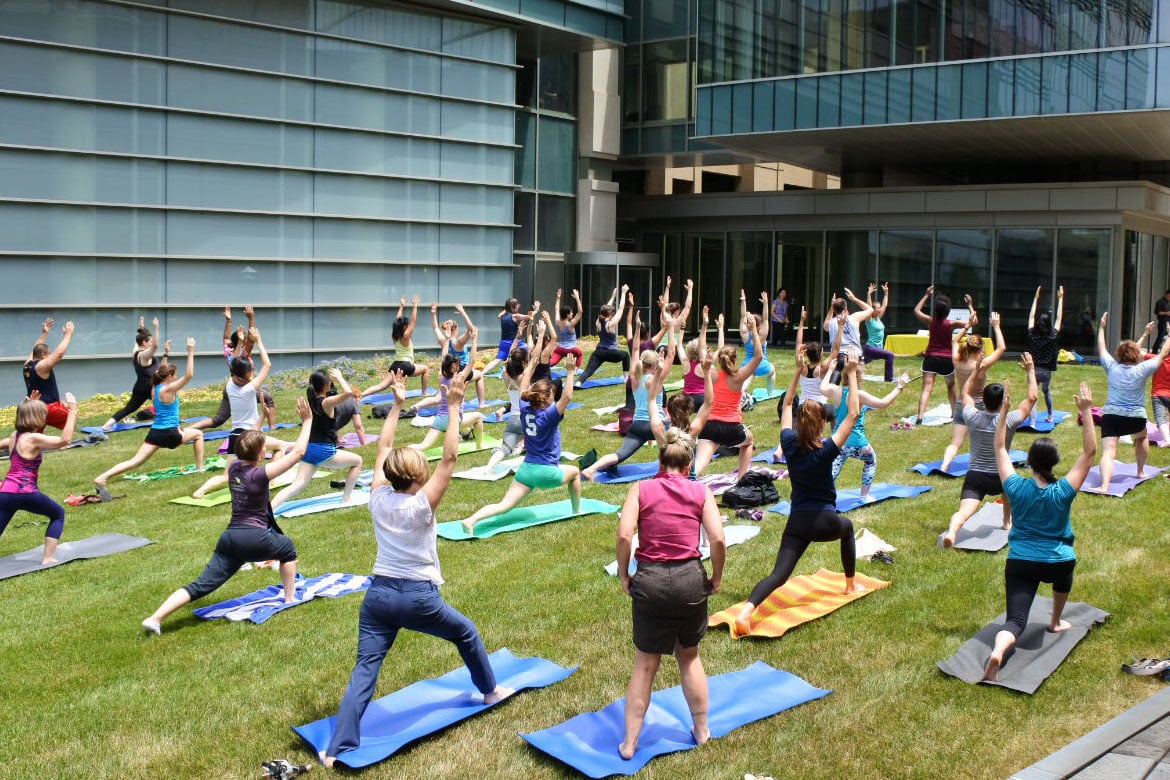With about half of the trainees at Johns Hopkins School of Medicine experiencing symptoms of burnout, according to a systemwide safety culture survey, leaders there launched an initiative to address the issue. Through monthly wellness events and weekly emails, residents and clinical fellows can now participate in a variety of activities aimed at improving well-being across the campus.
While these activities are a step in the right direction for improving well-being, the overall solution requires a systems approach.
“As leaders of the Graduate Medical Education [GME] office at Johns Hopkins, we recognized the need for a multi-pronged initiative to improve well-being and reduce burnout,” said Laura Hanyok, MD, a general internist and assistant dean of GME at Johns Hopkins School of Medicine.
By performing a needs assessment of residency and fellowship program directors and coordinators, Dr. Hanyok and her colleagues identified a need for more wellness programming. To determine which strategies to include in the wellness initiative, GME leaders followed the nine organizational strategies to reduce burnout laid out by Tait Shanafelt, MD, and John Noseworthy, MD. These strategies also are outlined in an AMA STEPS Forward™ module, “Creating the Organizational Foundation for Joy in Medicine.”
Leaders at Hopkins also reviewed the medical literature and found information online about other well-being programs, and also sought input from residents, fellows and faculty physicians.
A spot to decompress
“Wellness Wednesdays” occur once a month to offer various programs centered on well-being in different areas. This will often involve drop-in massages for residents, fellows and physicians, as well as snacks, healthy foods and other activities depending on the month.
For February’s Wellness Wednesday, Johns Hopkins offered free consultations on approaches to paying for student loans.
“Financial well-being is something that is on the minds of people,” said Dr. Hanyok. “Other times we have pet therapy dogs and yoga. It’s different kinds of programming for people to be able to get to and is held in the afternoon and early evening hours.”
The monthly events were created so that residents, clinical fellows, and physicians can drop in for about 10 or 15 minutes when they have a break to get something to eat, a massage and to visit with others.
“So far we have had a lot of people attending it,” she said. “[However], it’s also a limitation if you are a surgeon in the OR and can’t step away for 10 minutes. That’s why we’re also thinking about how we need to coordinate things within the programs too,” she added.
Another element of the initiative at Johns Hopkins is the weekly “Wellness Matters” emails sent to about 1,100 residents and clinical fellows, as well as program directors and coordinators. This email provides information regarding activities for that week and reminds residents and fellows of the resources available.
The emails range widely in content, from the serious to the merely fun. For example, they offer advice on how to contact a psychiatrist for personal counseling if needed. But they also will highlight diversions such as Baltimore’s “restaurant week” event. Residents, clinical fellows, and faculty physicians have found the weekly emails useful.
Systemwide outlook
Faculty role modeling and coaching to promote resilience and thriving in medicine is another work in progress for improving trainee well-being at Johns Hopkins. As noted in the AMA STEPS Forward module, there is a Joy in Medicine task force at the school that is focused on strengthening well-being for practicing physicians, health professionals and others.
“The task force has actually released recommendations on establishing a wellness office and doing other things to support our faculty,” Dr. Hanyok said. “We are planning to work with that new office to see how we can encourage faculty to role model this.”
More broadly, the Johns Hopkins task force has also identified programs and resources to improve the practice environment and keep physicians and other health professionals engaged. These include:
- A new awards program to recognize and honor excellent clinicians and care teams.
- A clearly outlined path to promotion for clinically focused faculty.
- Small-group leadership programs that provide career development and forge strong bonds among the graduates in each cohort.
- A research council wholly focused on identifying and decreasing barriers to scientific productivity across the enterprise.
- Methods to improve processes, such as a project addressing perioperative throughput and hiring outside consultants to advise on operational efficiency.
- Continuing education courses to help community physicians address EHR pain points, and practical finances, funds flow and new payment models.
- A program aimed explicitly at buffering against burnout called “Finding Joy and Cultivating Joy at Work.”
- A mindfulness-based stress reduction workshop open to all faculty, which proved so popular that one course was filled in under an hour after registration opened.
- Introduction of scribes in some specialties.
The effort will also include the creation of short videos to highlight the importance of well-being and how it can be modeled by physician faculty at Johns Hopkins. The importance of identifying trainees at risk for depression or suicide also is being stressed.
Several STEPS Forward modules have been developed from the generous grant funding of the federal Transforming Clinical Practices Initiative (TCPI), an effort designed to help clinicians achieve large-scale health transformation through TCPI’s Practice Transformation Networks. The AMA, in collaboration with TCPI, is providing technical assistance and peer-level support by way of STEPS Forward resources to enrolled practices. The AMA is also engaging the national physician community in health care transformation through network projects, change packages, success stories and training modules.




